Oasis en Argentina: un amor que resistió al tiempo
Nov 24, 2025
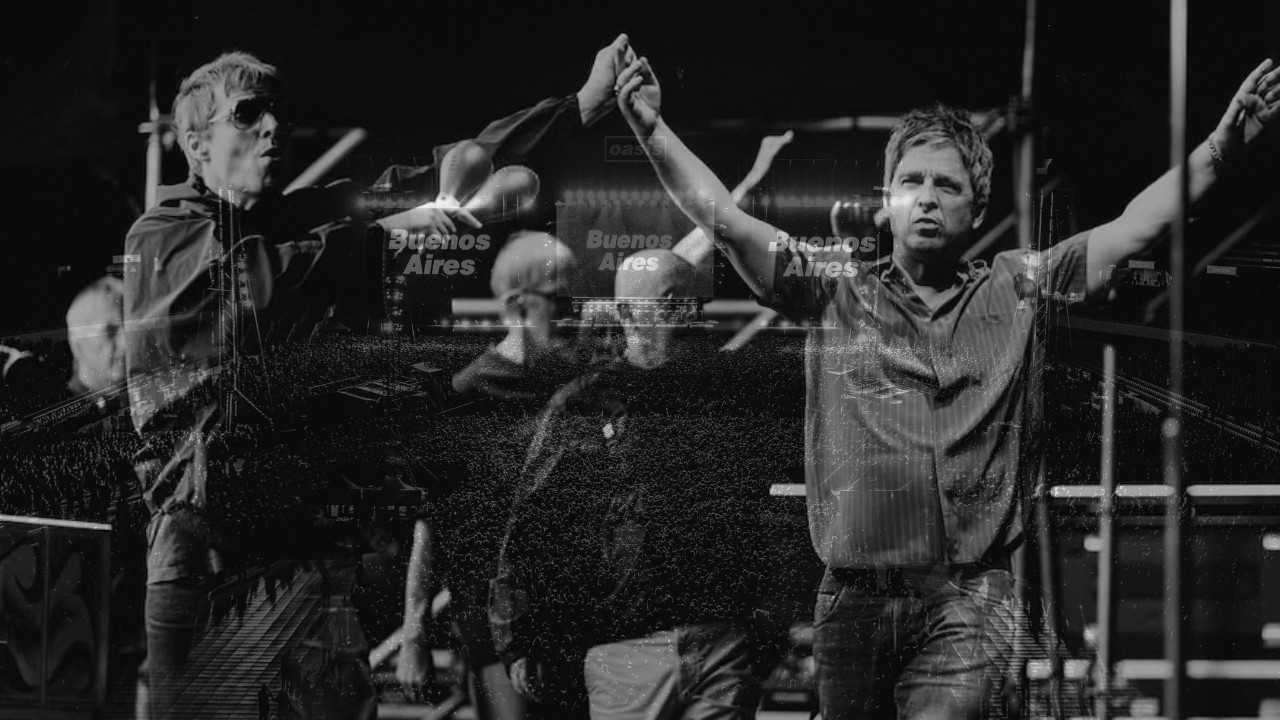
Hay conciertos que se recuerdan por un setlist perfecto, por una puesta en escena memorable o por la precisión técnica de una banda. Y hay otros, mucho más especiales, que trascienden lo musical para convertirse en un acontecimiento emocional, cultural y casi histórico. Los shows de Oasis en Argentina pertenecen, sin dudas, a esta segunda categoría.
Durante años aprendimos a convivir con una certeza dolorosa: Oasis ya no iba a volver. Que lo que no se vivió en su momento, ya no podría vivirse nunca. Que los Gallagher eran parte de un pasado inmenso, glorioso, pero cerrado. Para toda una generación que creció cuando la banda ya estaba separada, amar a Oasis era también aceptar que esa experiencia quedaría incompleta. Canciones escuchadas en auriculares, recitales vistos por YouTube, tapas de discos gastadas de tanto girar, entrevistas repetidas como si fueran reliquias.
El amor entre Argentina y los Gallagher comenzó hace años y no entiende de temporadas ni modas. Tal vez sea la pasión desbordada, el amor por el fútbol, nuestras figuras populares o ese origen obrero de Manchester que, de algún modo, sentimos cercano. Quizás sea porque Oasis fue el soundtrack de la infancia y adolescencia de muchos, porque alguna de sus canciones nos acompañó en momentos decisivos de nuestras vidas, cuando el mundo parecía enorme y frágil al mismo tiempo.
Pero algo profundo se reparó al verlos finalmente sobre el escenario, después de tantos años y de tantas certezas rotas. Como si nada hubiera pasado, aun sabiendo todo lo que pasó, ahí estaban otra vez, bajo el cartel que volvía a decir Oasis, frente a una multitud que los esperó con amor, paciencia y fe. Sentir que era real fue, para muchos, la confirmación de un sueño que creíamos imposible.
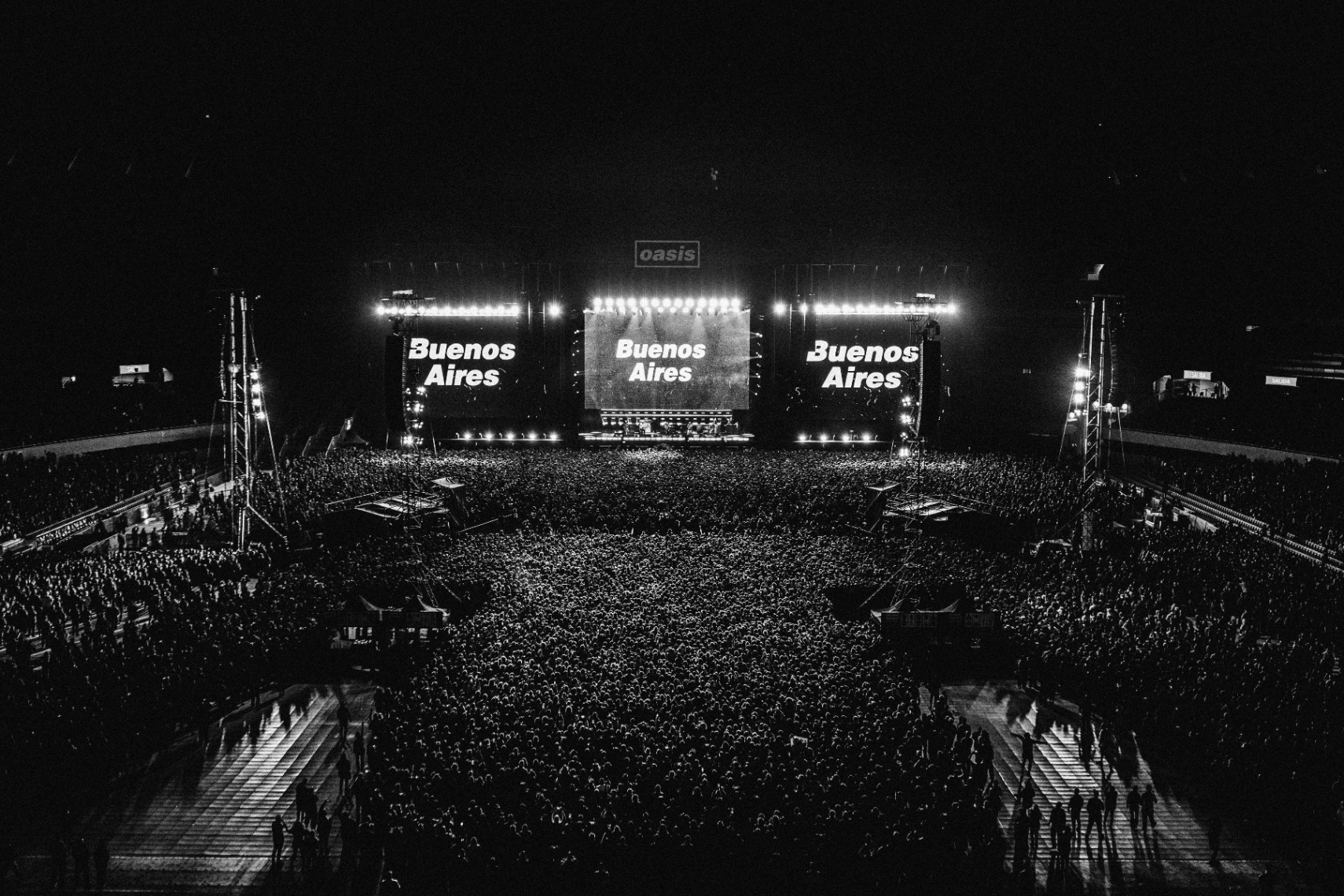
Pero el amor de Argentina por Oasis no nació de la nada. Se gestó con cada visita, con cada show explosivo, con cada público coreando mucho más fuerte de lo esperado. Desde su primer desembarco en los años 90, el vínculo fue inmediato: un público que no solo cantaba las canciones, sino que las vivía como propias. Para Argentina, Oasis no fue solo una banda británica más. Fue bandera, refugio, identidad emocional.
Y ellos lo supieron. Lo sintieron. Especialmente Noel Gallagher, quien a lo largo de los años no dejó de nombrar a Argentina como uno de los lugares donde la conexión era más profunda. Habló de nuestros shows como algunos de los más intensos de su carrera. Dijo que acá el público no solo escucha, sino que acompaña, sostiene, entiende. Que en Argentina hay una energía única, una pasión que se parece mucho a la de su propia historia: barrios obreros, cultura popular, fútbol convertido en religión, la música como salvación.
Por eso, cuando se anunció la gira de reunión y la reconciliación de los Gallagher, algo se movió en todos nosotros. No fue solo sorpresa: fue incredulidad, alivio, emoción pura. Era la posibilidad de reescribir la historia. De devolverle cuerpo a un sueño que parecía perdido. Y cuando finalmente se confirmaron las fechas en Argentina, Buenos Aires empezó a transformarse lentamente, como si supiera que se acercaba algo que iba a marcar época.
La ciudad lo empezó a vivir mucho antes de que sonara la primera guitarra. En las calles comenzó una especie de vigilia emocional. Playlists compartidas, recuerdos de recitales pasados, fotos antiguas, debates interminables, teorías sobre el setlist. Para Pampa, una de las voces que atraviesa esta crónica, la espera también fue una forma de celebración: hilos recordando las visitas históricas de Oasis, ayuda para conseguir entradas, difusión de emprendimientos fanáticos, contenido pensado para que cada persona pudiera vivir ese regreso como algo propio. La espera dejó de ser ansiedad y se convirtió en ritual.
Y entonces llegó la semana. Oasis en Buenos Aires. Como si la ciudad hubiera sido invadida por una misma melodía, las camisetas empezaron a multiplicarse, los parlantes improvisados a sonar, los encuentros espontáneos a florecer. En el Barrio Chino, la gente se abrazaba cantando. En las veredas, músicos callejeros versionaban himnos de la banda. En Avenida Libertador, una marea humana con el número '25 en la espalda avanzaba hacia River como si se dirigiera a una peregrinación. El clima era mundialista, pero con guitarras, con nostalgia, con amor.
El sábado fue la primera vez después de años. El calor agobiante. La amenaza de lluvia. El show adelantado. Una multitud contenida por la emoción de lo que estaba por suceder. El domingo, en cambio, fue frío y ventoso, el show se retrasó y hasta el set de Richard Ashcroft se vio recortado. Pero nada de eso importó. Porque cuando Oasis apareció, el estadio entero se rindió. No era un simple recital: era una reunión largamente esperada, un abrazo colectivo, una confirmación de que todo ese amor había sobrevivido al tiempo.
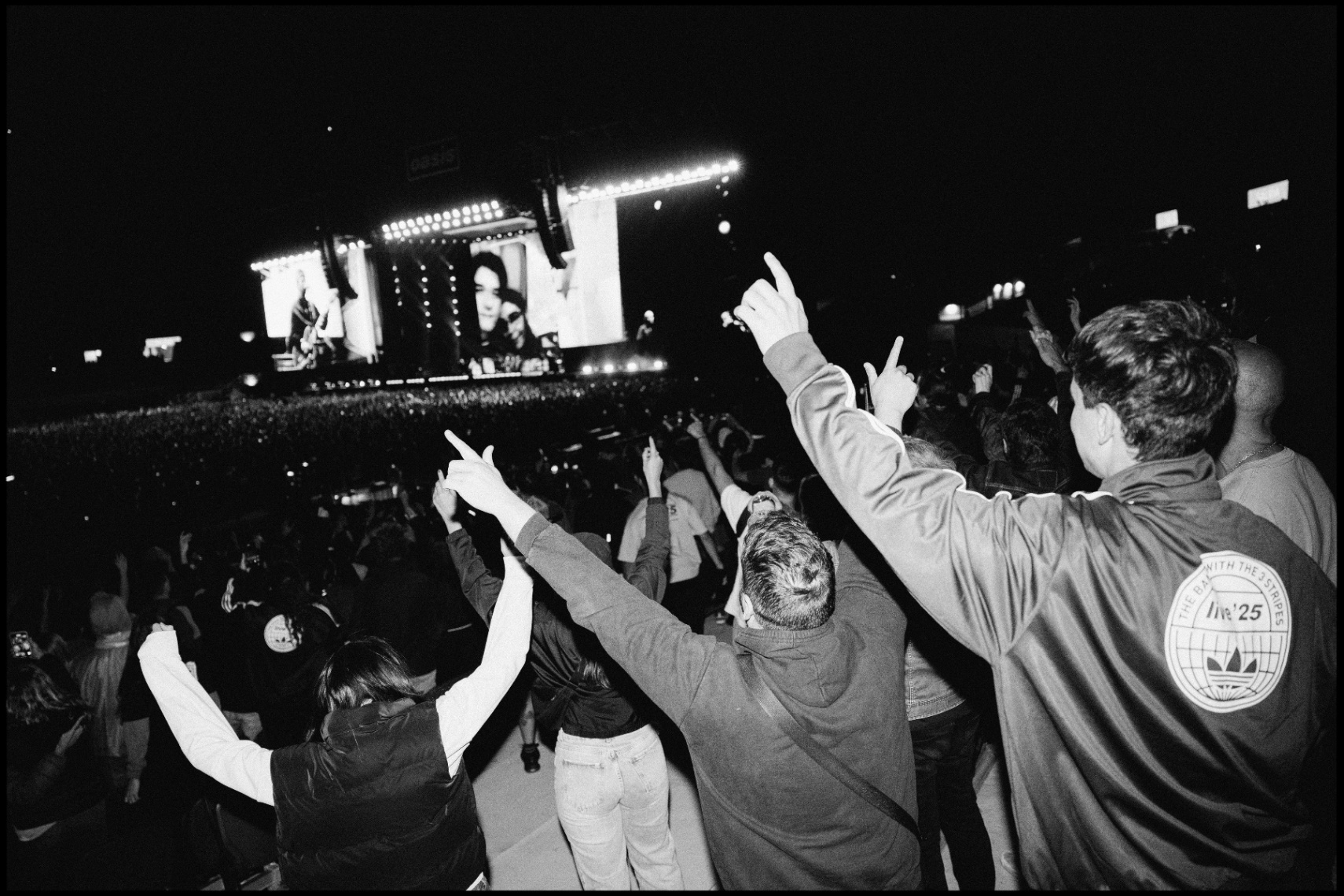
Y cuando finalmente aparecieron Liam y Noel, algo se alineó. Como si el tiempo se hubiera plegado sobre sí mismo. Como si aquellos años de peleas, distancia y silencio hubieran sido solo una pausa necesaria. Ahí estaban, mayores, sí, pero intactos. Verdaderos. Poderosos. Noel sonriendo mientras dejaba que el público tomara la voz, dedicando Talk Tonight a las chicas, ambos homenajeando a Diego Armando Maradona durante Live Forever. Liam, con su estilo inconfundible, diciéndonos que éramos "los número uno", que estábamos completamente "locos". Y nosotros respondiendo con una devoción que solo se entrega cuando el amor es real.
Entre las miles de historias que se escribieron esos días, la de Pampa resume con precisión lo que fue esa Oasismanía en Buenos Aires. Decidió reservar una de las fechas para ir en busca de un autógrafo y terminó viviendo una experiencia irrepetible: horas de espera bajo un clima cambiante, el encuentro cercano con Richard Ashcroft, la firma en su libro Nuestro Oasis, una historia argentina, la carrera hacia el hotel de Noel y esa escena que evocaba a la Beatlemanía. Se fue con las firmas de dos de sus referentes, una nueva amistad y la certeza de haber sido parte viva de ese momento histórico.
Pampa define esos shows con tres palabras que no necesitan explicación: eléctrica, pasional, trascendental. Porque hubo instantes en los que lo musical dejó de ser solo música. Las linternas encendidas durante Talk Tonight convirtieron al estadio en un cielo de pequeñas luces, cada una cargando su propia historia, su propia herida, su propio consuelo. Y ese "are you ready?" antes de Don't Look Back in Anger selló algo más profundo: la certeza de que el vínculo entre Oasis y Argentina sigue siendo único, visceral, irrompible.
Lo que se vivió en Buenos Aires fue una peregrinación emocional. Familias completas, padres que criaron a sus hijos con Oasis como soundtrack y ahora esos hijos llevándolos hasta River, hermanos que compartieron canciones como forma de crecer, personas que viajaron desde otros países porque "el público argentino es el mejor del mundo". Matt Smith, amigo de Noel, presente ambas noches. Noel paseando por Recoleta, por la Bombonera, seguido por una marea de fanáticos coreando su nombre.
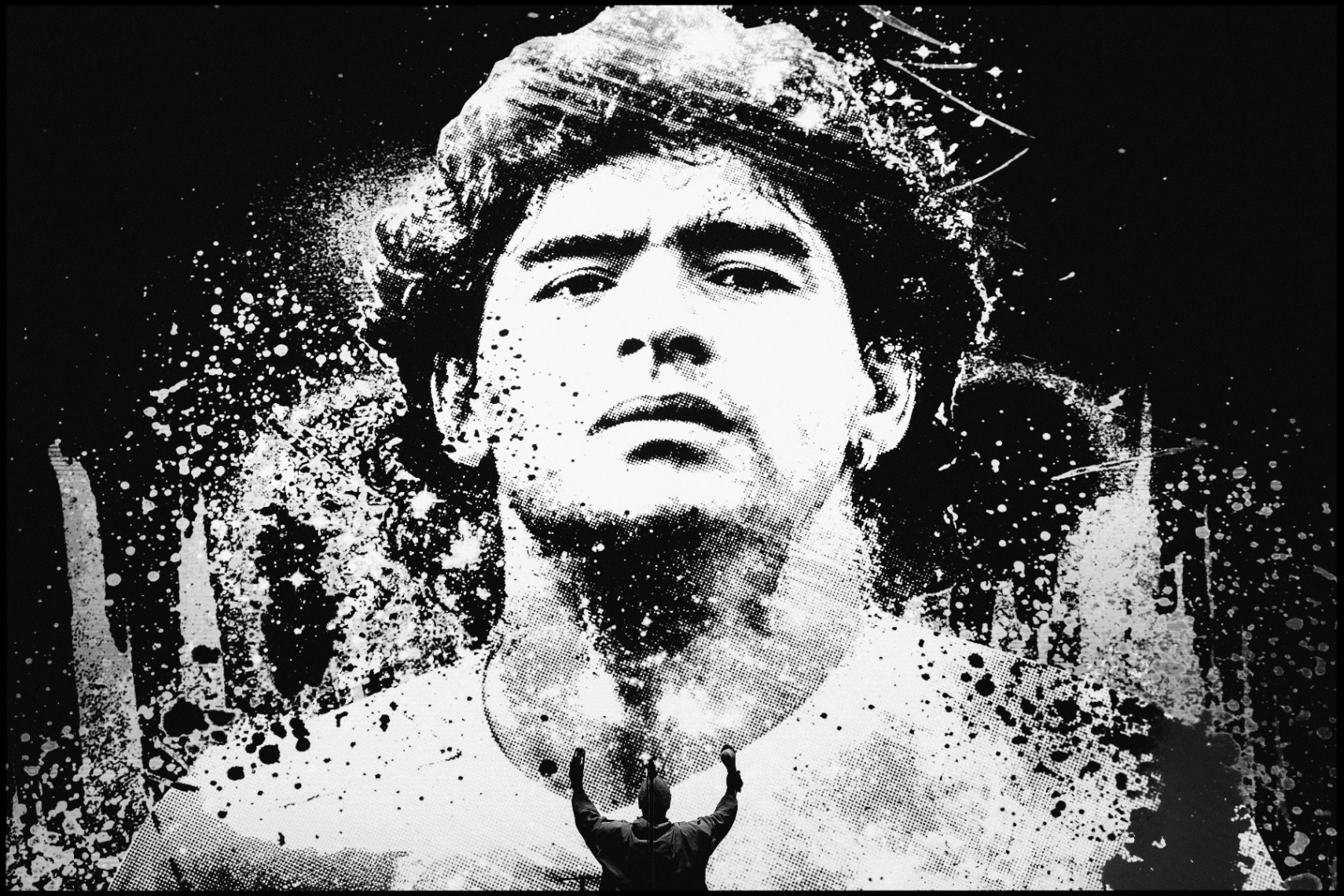
No fue nostalgia. Fue presente. Fue amor vigente. Fue una reconciliación simbólica entre dos hermanos y también entre una banda y su gente. "Oasis es el soundtrack de mi vida", dice Pampa. "Es parte de mi identidad." Y esa frase podría pertenecerle a miles.
Oasis y Argentina se devolvieron amor. Un amor que nació hace décadas, que sobrevivió a la separación y que hoy se reafirma como un vínculo profundo, genuino, correspondido. Una historia que sigue creciendo, como dijo el propio Noel, como un romance que no se agota.
Y quizás eso fue lo más poderoso de estas noches: comprobar que aquello que creímos terminado seguía vivo. Que los sueños pueden volver. Que las canciones también sanan. Que hay momentos que quedan suspendidos en el tiempo y regresan cuando más los necesitamos.
Mientras la última nota de Champagne Supernova se desvanecía y los fuegos artificiales iluminaban el cielo sobre River, quedó flotando algo imposible de explicar del todo: una calma extraña, una felicidad compartida, un eco que seguía vibrando incluso cuando las luces se apagaron. La ciudad volvió a su ritmo, pero algo había cambiado.
Porque Oasis no fue solo una banda en River. Fue memoria viva. Fue sanación. Fue historia.
Y como alguna vez escribió José Hernández:
"Los hermanos sean unidos porque esa es la ley primera; tengan unión verdadera en cualquier tiempo que sea, porque si entre ellos se pelean los devoran los de afuera."
IMÁGENES: (@HARRIETTKBOLS)
ENGLISH VERSION
Oasis in Argentina: A Love That Stood the Test of Time
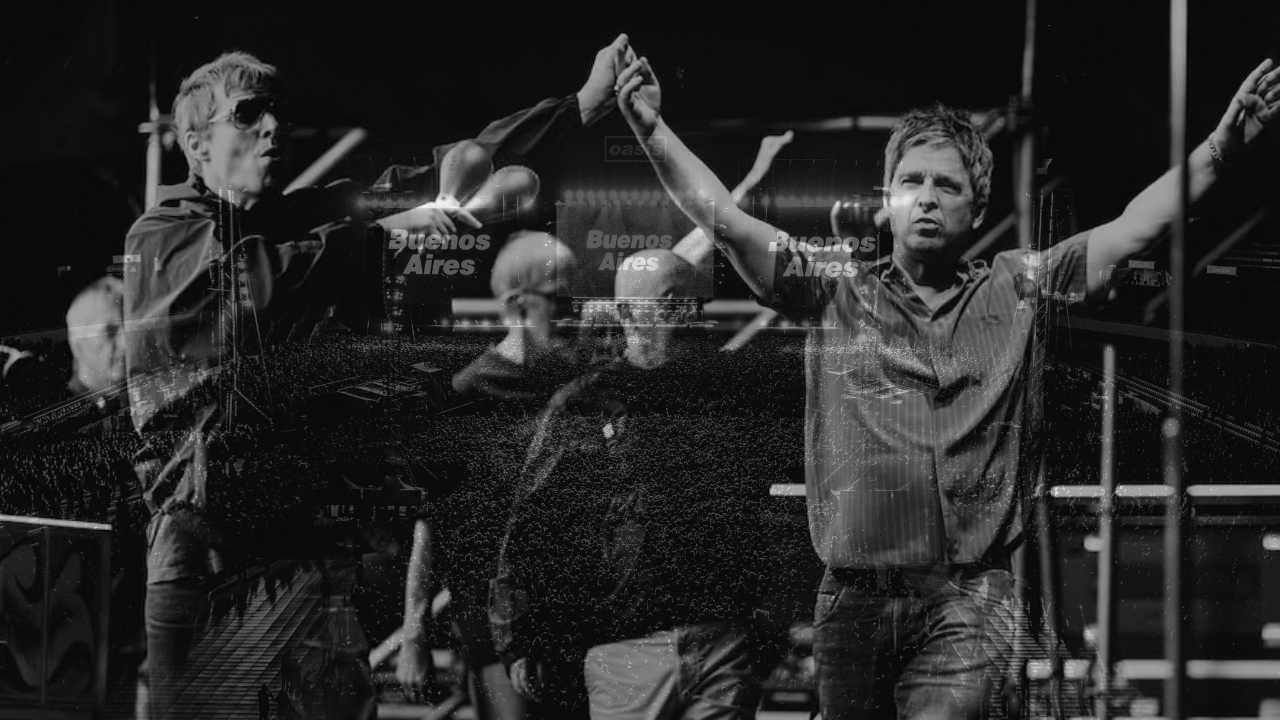
There are concerts remembered for a flawless setlist, a memorable stage production or a band's technical precision. And then there are others, far more special, that transcend the music to become an emotional, cultural and almost historical event. Oasis' shows in Argentina undoubtedly belong to the latter category.
For years we learned to live with a painful certainty: Oasis would never return. That what had not been lived at the time could never be experienced. That the Gallaghers belonged to an immense, glorious but closed chapter of the past. For an entire generation that grew up after the band had already split, loving Oasis also meant accepting that the experience would always feel incomplete. Songs listened to through headphones, gigs watched on YouTube, album covers worn down from endless spins, interviews replayed like sacred relics.
The love between Argentina and the Gallaghers began years ago and defies seasons and trends. Perhaps it is the overflowing passion, the devotion to football, our popular icons or that working-class Manchester origin that somehow feels familiar to us. Perhaps it is because Oasis became the soundtrack to so many childhoods and teenage years, because one of their songs accompanied us through decisive moments in our lives, when the world felt both immense and fragile at once.
Yet something deep was mended when we finally saw them on stage again, after so many years and so many broken certainties. As if nothing had happened, even knowing everything that had happened, there they were once more, beneath the sign that read Oasis again, facing a crowd that had waited with love, patience and faith. Feeling that it was real was, for many, the confirmation of a dream we believed to be impossible.
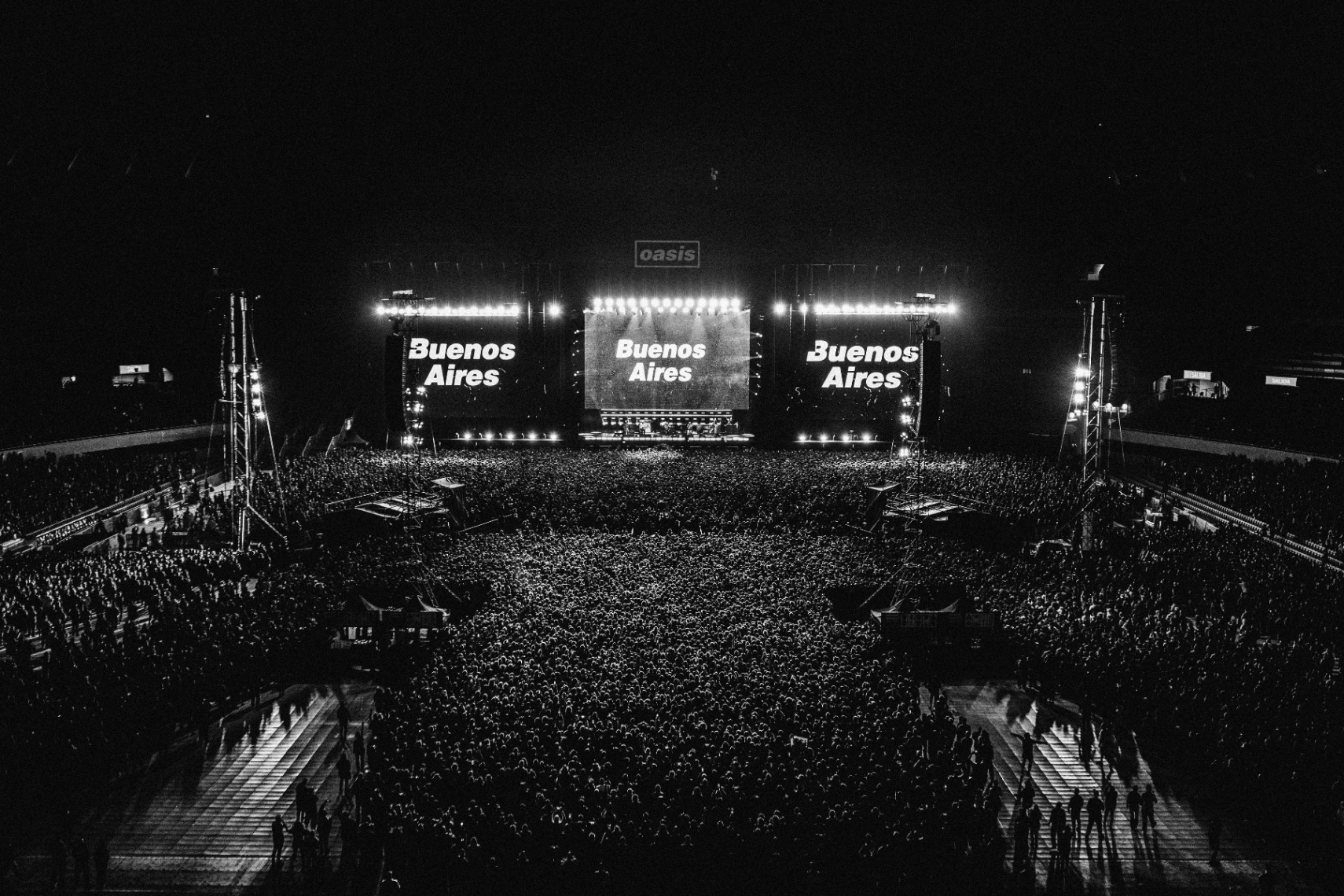
But Argentina's love for Oasis did not emerge from nowhere. It was forged with every visit, every explosive show, every crowd singing far louder than expected. From their first arrival in the 90s, the bond was immediate: an audience that did not merely sing the songs, but lived them as its own. For Argentina, Oasis was never just another British band. It was a flag, a refuge, an emotional identity.
And they knew it. They felt it. Especially Noel Gallagher, who over the years never stopped naming Argentina as one of the places where the connection ran deepest. He spoke of our shows as some of the most intense of his career. He said that here the audience does not only listen, but accompanies, supports, understands. That in Argentina there is a unique energy, a passion that closely resembles his own story: working-class neighbourhoods, popular culture, football as religion, music as salvation.
So when the reunion tour and the Gallaghers' reconciliation were announced, something shifted in all of us. It was not simply surprise: it was disbelief, relief, pure emotion. It was the chance to rewrite history. To give shape once more to a dream that seemed lost. And when the dates in Argentina were finally confirmed, Buenos Aires began to transform slowly, as if it knew something era-defining was approaching.
The city started living it long before the first guitar chord rang out. A sort of emotional vigil took over the streets. Shared playlists, memories of past gigs, old photographs, endless debates, theories about the setlist. For Pampa, one of the voices running through this review, the wait itself became a celebration: threads recalling Oasis' historic visits, help finding tickets, promotion of fan-made merch, content created so that everyone could experience this return as something personal. Waiting stopped being anxiety and turned into ritual.
And then the week arrived. Oasis in Buenos Aires. As if the city had been taken over by a single melody, the shirts multiplied, speakers filled the air with sound, spontaneous encounters blossomed. In Barrio Chino, people hugged while singing. On pavements, street musicians covered the band's anthems. Along Avenida Libertador, a human tide with the number ‘25 on their backs moved towards River stadium as if embarking on a pilgrimage. The atmosphere was World Cup-like, but driven by guitars, nostalgia and love.
Saturday marked the first night after so many years. Suffocating heat. The threat of rain. The show brought forward. A crowd holding its breath in anticipation of what was about to unfold. Sunday, on the other hand, was cold and windy, the show delayed and even Richard Ashcroft’s set shortened. Yet none of that mattered. Because when Oasis appeared, the entire stadium surrendered. It was not merely a concert: it was a long-awaited reunion, a collective embrace, the confirmation that all that love had survived time.
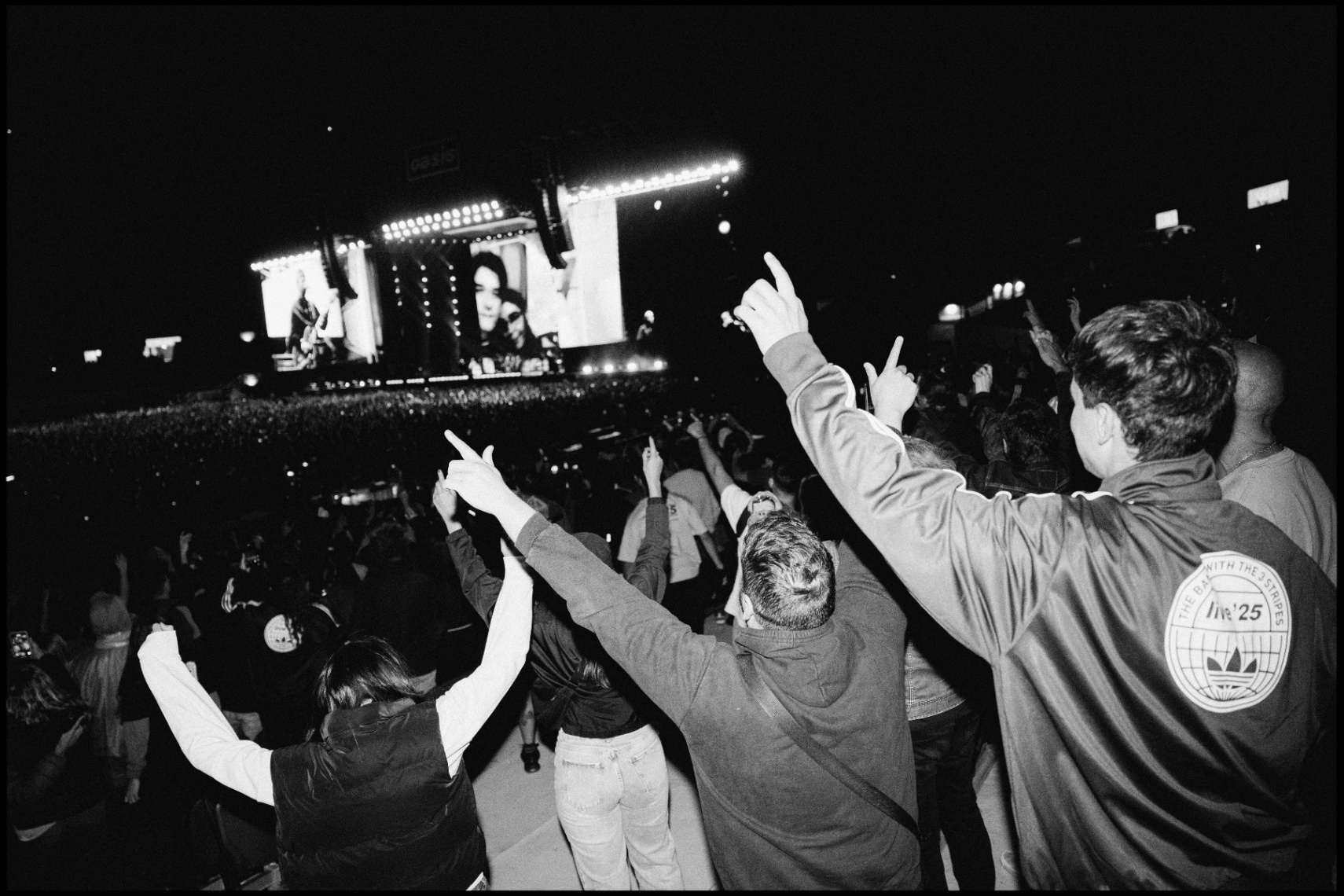
And when Liam and Noel finally emerged, everything fell into place. As if time had folded in on itself. As if the years of fights, distance and silence had only been a necessary pause. There they were: older, yes, but intact. True. Powerful. Noel smiling as he let the crowd take the lead, dedicating Talk Tonight to the ladies; both paying tribute to Diego Armando Maradona during Live Forever. Liam, with his unmistakable style, calling us "number one", telling us we were completely "locos". And we answered with a devotion only born when love is real.
Among the countless stories written those days, Pampa's encapsulates what that Oasismania meant in Buenos Aires. She chose to save one of the nights to go in search of an autograph and ended up living an unrepeatable experience: hours waiting under volatile weather, a close encounter with Richard Ashcroft, his signature in her book Nuestro Oasis, una historia argentina, a sprint towards Noel's hotel and a scene reminiscent of Beatlemania. She left with the signatures of two of her idols, a new friendship and the certainty of having been a living part of that historic moment.
Pampa describes those shows in three words that need no explanation: electric, passionate, transcendental. Because there were moments when music ceased to be just music. The phone lights during Talk Tonight turned the stadium into a sky of tiny stars, each one carrying its own story, its own wound, its own solace. And that "are you ready?" before Don't Look Back in Anger sealed something deeper: the certainty that the bond between Oasis and Argentina remains unique, visceral, unbreakable.
What Buenos Aires lived through was an emotional pilgrimage. Entire families, parents who raised their children with Oasis as their soundtrack and now those children taking them to River stadium, siblings who grew up sharing these songs, people travelling from other countries because "the Argentine crowd is the best in the world". Matt Smith, Noel's friend, present both nights. Noel strolling through Recoleta, through La Bombonera, followed by a wave of fans chanting his name.
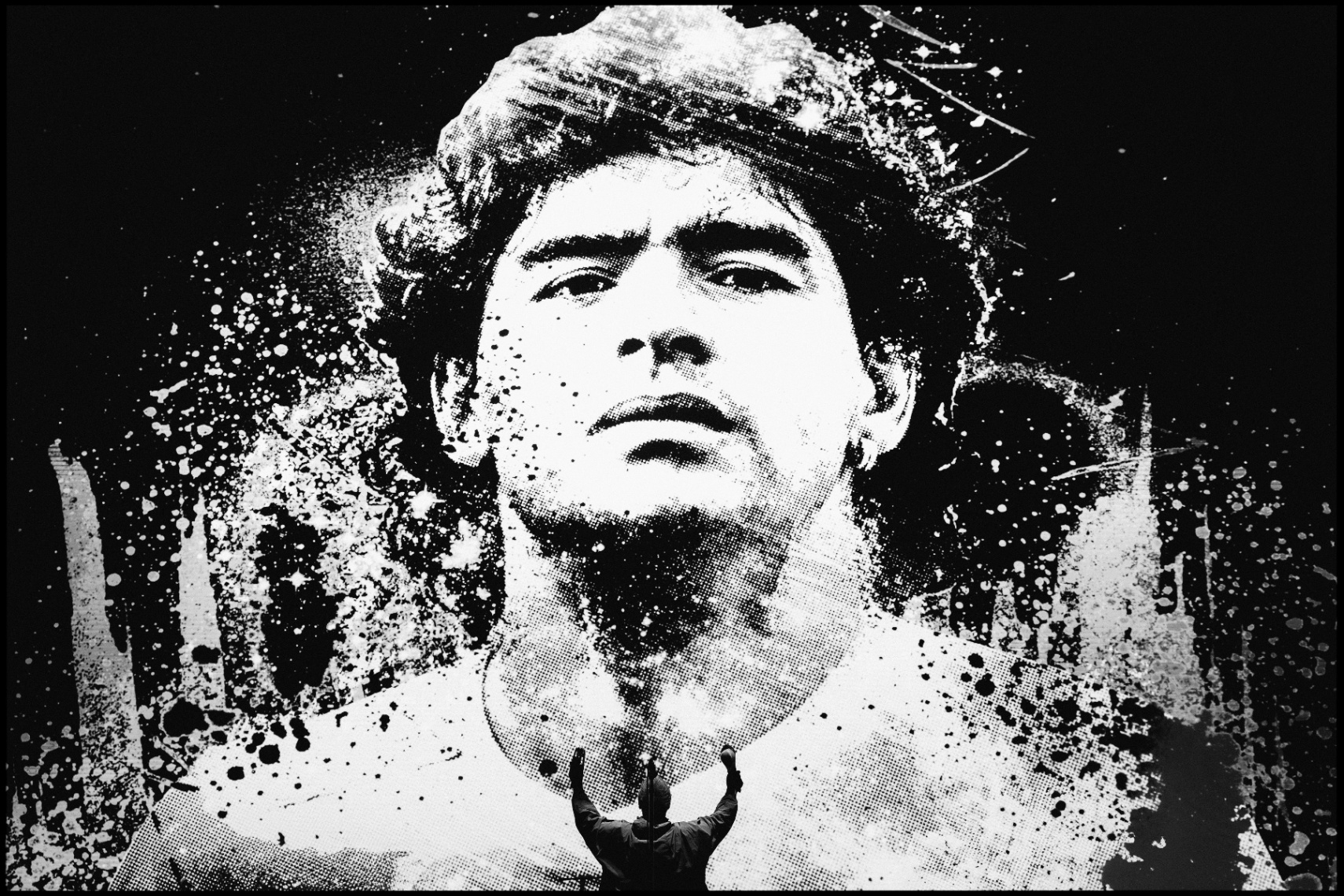
It was not nostalgia. It was the present. It was living love. It was a symbolic reconciliation between two brothers and also between a band and its people. "Oasis is the soundtrack of my life," says Pampa. "It’s part of my identity." And that sentence could belong to thousands.
Oasis and Argentina returned love to one another. A love born decades ago, one that survived the split and today reaffirms itself as a deep, genuine, shared bond. A story that continues to grow, as Noel himself once said, like a romance that never fades.
Perhaps that was the most powerful of all: realising that what we believed to be over was still alive. That dreams can be fulfilled, that the stars did allign. That songs can heal. That there are moments that remain suspended in time and come back to us when we need them most.
As the final notes of Champagne Supernova faded and fireworks lit up the sky above River stadium, something impossible to fully explain lingered in the air: a strange calm, a shared happiness, an echo that kept vibrating even after the lights went out. The city returned to its rhythm, but something had shifted.
Because Oasis was not just a band at River Plate stadium. It was living memory. It was healing. It was history.
And as José Hernández once wrote:
"Brothers must stay united, for that is the first law; they must keep true unity at all times, for when they fight among themselves, those outside devour them."
Si te gustó este post, considera invitarle un cafecito al escritor
Comprar un cafecito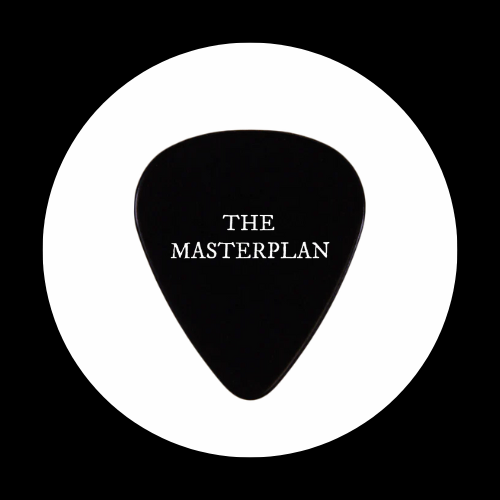
The Masterplan
The Masterplan es un espacio dedicado a la cultura emergente y la música indie. Una mirada crítica y honesta para amplificar lo nuevo y lo que aún está por descubrirse.
Recomendados
Hacete socio de quaderno
Apoyá este proyecto independiente y accedé a beneficios exclusivos.
Empieza a escribir hoy en quaderno
Valoramos la calidad, la autenticidad y la diversidad de voces.
Comentarios
No hay comentarios todavía, sé el primero!
Debes iniciar sesión para comentar
Iniciar sesión